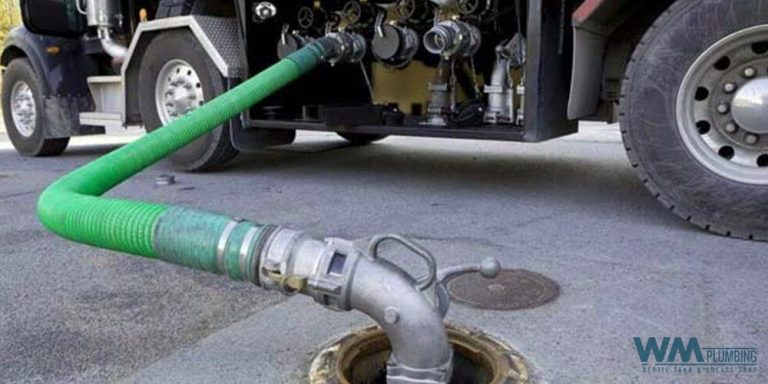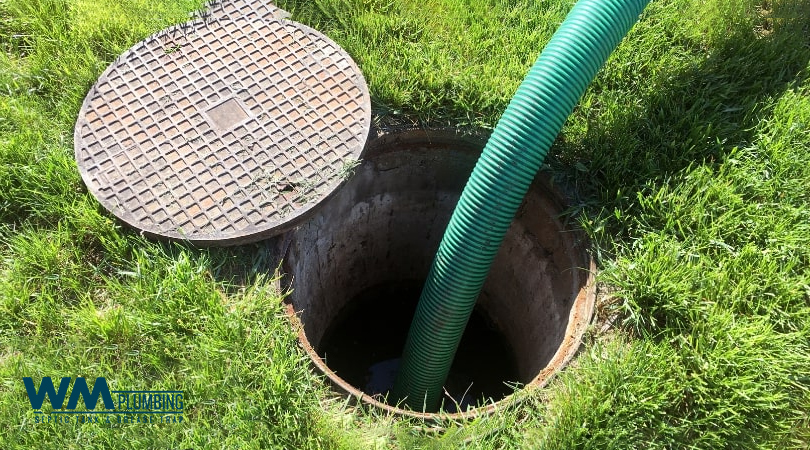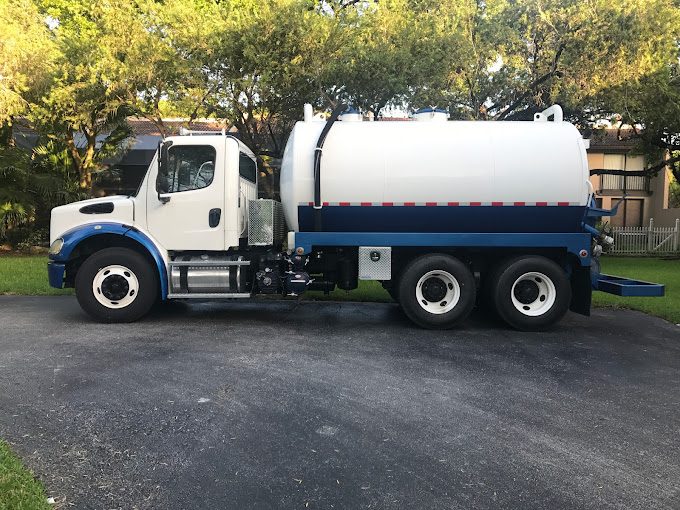Offering fast & affordable septic tank services in Doral and the greater Miami area
Septic tank services refer to the various maintenance, cleaning, and repair tasks associated with septic tank systems. A septic tank is an underground chamber made of concrete, fiberglass, or plastic that collects and treats wastewater from homes and businesses that are not connected to a centralized sewer system. These septic systems are commonly found in rural areas or locations where municipal sewer lines are not available. You can be proactive towards the maintenance and functioning of your septic system, but as you cannot control the regular wear and tear of these systems. Call the certified and skilled plumbers of WM Plumbing to help with your septic needs.
Septic Tank Plumbing
Equipped with the latest tools and equipment, our team of expert plumbers at WM Plumbing is capable of resolving the issues related to septic tank plumbing immediately on call. The Septic Tank services offered by our team include installation of the septic tank, its pumping, cleaning and repair. We are available 24×7 for 365 days available at your doorsteps on a single call.

Common Problems associated with Septic Tanks
- Overflow: The problem of overflow is the common problem associated with the septic tank. This is mainly because of its inefficiency of absorbing the wastewater. Improper drainage can lead to wastewater pooling in the drain field or seeping into the surrounding soil, causing foul odors and potential health hazards.
- Clogs: Solid waste and non-biodegradable items like wipes, hygiene products, or grease can clog the septic system, leading to backups and potential damage to the tank or pipes.
- Tree root intrusion: Tree roots can invade the septic system and disrupt the pipes, causing blockages and potential structural damage.
- Roots of the plants: As the main objective of the septic tank to let the wastewater of your place move ahead to any of the nearby processing plants, there are chances that little plants may come out close to the beneath of the tank. In the beginning, it looks like a natural grass growing around the tank, but at the time passes, the roots of the plants start moving inside the cornerstone of the tank and start damaging it.
- Chemical misuse: The use of excessive or harmful chemicals (e.g., strong disinfectants, pesticides, or paint thinners) can disrupt the natural bacterial balance in the septic system, hindering wastewater treatment.
- Wall corrosion: The walls of the tank may crack due to trapping of hydrogen sulfide gas in the compartment tanks.
- Division of the wall: If the walls of septic tank break into two compartments, there are chances that one of the chambers can trap the sludge and create a problem in the functioning of the tank.
“What can I say – I had an excellent experience with this company! WM Plumbing cleaned my Dad’s tank as well as mine and the service was great! They were fast, efficient, and professional. This was my first experience with a septic tank and Gabriel went out of his way to walk me through the whole process and was kind enough to answer all of my questions. I highly recommend this company – they are absolutely wonderful.”
Jayme
Septic Services Offered by WM Plumbing
- Septic Tank Pumping: For the smooth functioning of the septic tank it is mandatory to get pumped after every three to five years. This prevents the tank from becoming overloaded and ensures proper functioning. Keeping the safety factors in concern and following the environmental rules and regulations the expert plumbers of our group ensure that the waste of your septic tank is moved ahead to an approved processing and facility treatment plant.
- Commercial Septic System Services: We are the certified plumbers that offer the septic plumbing services in South Florida for both the commercial and residential projects. If there is any type of issue in the septic tank of your office for instance, toilets are not flushing properly, leakage in the sewage system or drains. Without wasting much of your time, call us and get the septic system of your commercial building cleaned properly.
- Septic System Maintenance: Besides septic tank pumping, we also offer regular inspection and maintenance service of the septic tank on demand and also suggest the precautionary measures to our clients. The maintenance service offered by us includes cleaning to remove stubborn residues and debris that may not be removed during pumping.
- Septic Tank Inspections: Professional inspections are essential to assess the condition of the septic system and identify any potential issues that need attention.
- Septic Tank Repair: If there are any problems with the septic tank or its components, such as cracks, leaks, or damaged baffles, we can conduct necessary repairs to restore proper functionality. The professionals of our team are skilled with excavation efficiencies and capable of repairing and replacing the all septic tanks of all sizes without any complications.
- Septic Tank Installation: Septic tank services also include the installation of new septic systems for properties that are not connected to the municipal sewer system. We can also offer design and consulting services for new construction or system upgrades.
- Septic System Troubleshooting: We can troubleshoot any issues with the septic system and provide appropriate solutions.
- Drain Field Maintenance: The drain field, also known as the leach field, is an integral part of the septic system. Regular maintenance ensures it remains effective in treating and dispersing wastewater into the soil.
It’s important to have your septic tank system regularly inspected and serviced to ensure its proper functioning and avoid costly and environmentally damaging failures. The frequency of septic tank pumping and maintenance depends on factors such as the size of the tank, the number of people using it, and the volume of wastewater generated. It is generally recommended to have the tank pumped every 3 to 5 years, but this can vary based on individual circumstances. Always consult with us to determine the appropriate schedule for your specific system.

How to Know When Your Septic Tank Needs Pumping
Your septic tank is an essential component of your home’s plumbing system. It collects and treats wastewater from your home, and it’s crucial to keep it well-maintained to avoid costly repairs and backups. One critical aspect of septic tank maintenance is knowing when it needs pumping.
What is a Septic Tank?
A septic tank is an underground tank that collects and treats wastewater from your home. It is typically made of concrete, fiberglass, or polyethylene, and it has two chambers. The first chamber collects and separates solids from the wastewater, while the second chamber treats the wastewater with bacteria.
How Often Should You Pump Your Septic Tank?
The frequency of septic tank pumping depends on the size of your tank and the number of people in your household. As a general rule, it’s recommended to pump your septic tank every 3-5 years. However, if you have a smaller tank or a larger household, you may need to pump more frequently.
Signs Your Septic Tank Needs Pumping:
- Slow Drains: If your sinks, toilets, and showers are draining slowly, it could be a sign that your septic tank is full and needs pumping.
- Foul Odors: If you notice foul odors coming from your drains or your yard, it could be a sign that your septic tank is full and needs pumping.
- Lush Grass: If the grass over your septic tank is growing faster and is greener than the rest of your yard, it could be a sign that your septic tank is overflowing.
- Backup: If wastewater is backing up into your home, it’s a clear sign that your septic tank is full and needs pumping immediately.
What to Do When Your Septic Tank Needs Pumping If you notice any of the signs mentioned above, it’s essential to contact us immediately. Avoid using water in your home until the tank is pumped to prevent further damage and backups.
In addition, it’s important to invest in regular septic tank maintenance, such as inspections and pumping, to prevent costly repairs and backups. By investing in septic tank maintenance, you’ll keep your septic system functioning correctly and avoid costly repairs and backups.

Serving Doral and Greater Miami
Whether you’re located in Doral, Hialeah, Sweetwater, or Westchester, help is never far away.
See our full service area or call today to learn more.
